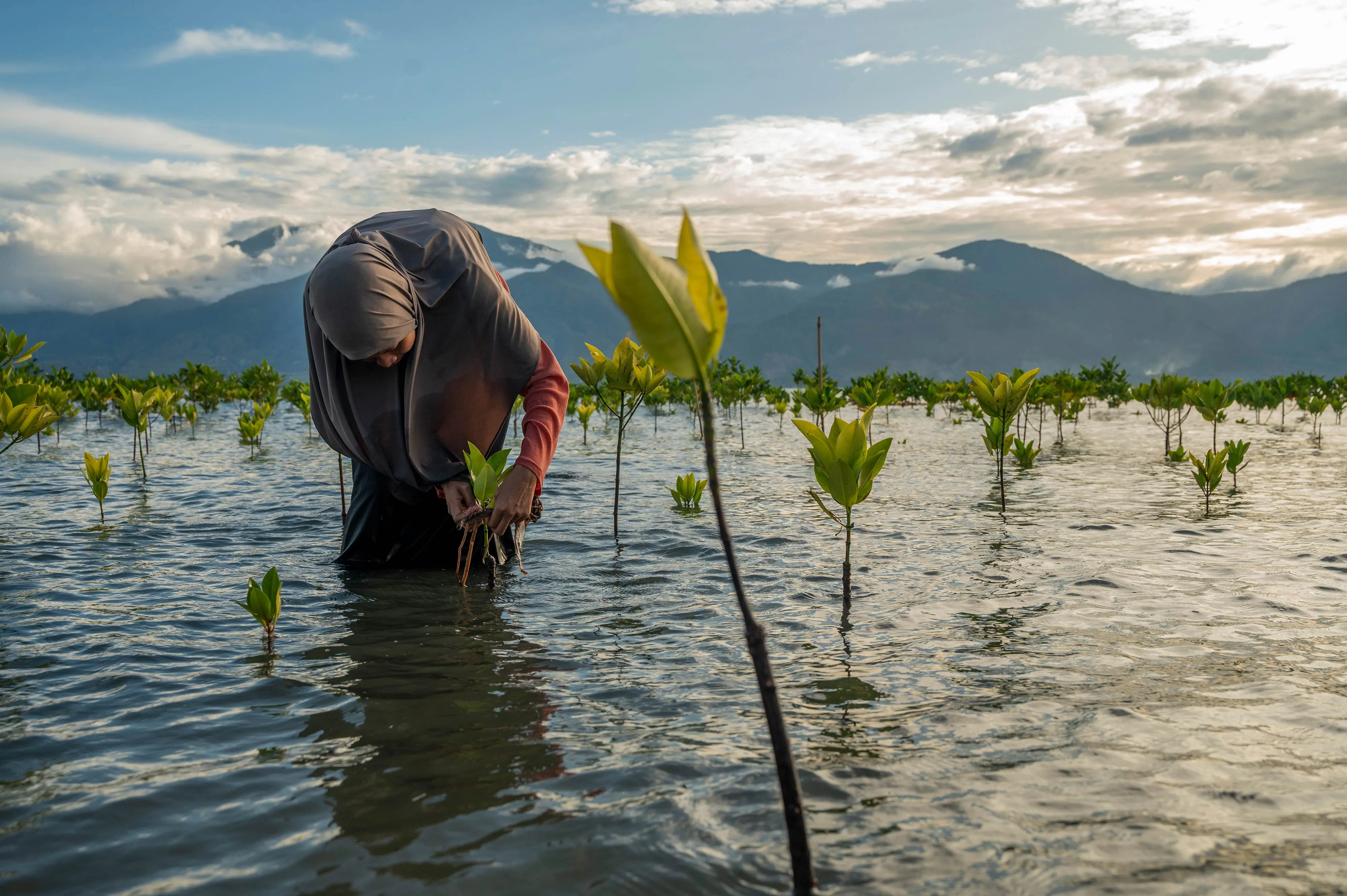 Basri Marzuki/NurPhoto via Getty Images
Basri Marzuki/NurPhoto via Getty ImagesWhen explosions coordinated by Rio Tinto, one of the world’s biggest mining companies, destroyed a 46,000-year-old Aboriginal rock shelter in Australia, Indigenous leaders took on the multinational corporation—and won. The Puutu Kunti Kurrama and Pinikura peoples argued that Rio Tinto never should have attempted to build an iron ore mine in the hillside of Juukan Gorge, a deeply significant site for their communities inhabited since the Ice Age. Facing pressure from shareholders, parliamentary, and scrutiny from environmental and human rights activists like the London Mining Network, Rio Tinto apologized, paid restitution, ousted three senior leaders and two board members, and vowed to prioritize Aboriginal leaders as partners moving forward.
This story is both a cautionary tale and a charge for corporate leaders: Include Indigenous perspectives now, or wish you had later. The ongoing relationship between Rio Tinto and Aboriginal leaders is still far from perfect, but a new arrangement, which includes both compensation and consultation, represents a modicum of progress. It is an acknowledgment that companies can no longer disregard the respective rights and voices of local, Indigenous, and Afro-descendant tribal communities in tackling the most urgent business and environmental challenges.
Foremost among them: climate change. As leaders from government and the private sector convene for COP28 to find new frameworks for climate finance and a just energy transition, local and Indigenous voices must be front and center. And there must be a verifiable commitment to respect and protect their rights.
As an Indigenous environmental activist and the president of a foundation committed to climate justice, we call on businesses to recognize Indigenous peoples and local communities (IP and LCs) as key stakeholders—for the sake of people, the planet, and their profits.
Meaningful collaboration requires reckoning with centuries of exploitation and well-earned distrust. Governments, colonizers, and corporations have long claimed Indigenous land as effectively terra nullius, disregarding treaty rights and extracting resources with scant regard for the health of the land or the people who know it best. They drilled oil from sacred ground, razed ancient forests, and displaced entire communities, devastating generations of local and Indigenous populations and destroying ecosystems that stood as bulwarks against climate change.
The consequences of drilling for fossil fuels and depleting other resources are dire for both the planet and for Indigenous and local communities. Without partnership and consultation, even purportedly climate-conscious approaches can be devastating.
Nearly 70% of transition mineral projects, which mine components for batteries and other renewable energy technologies, are located on or near Indigenous land. If the private sector fails to fundamentally shift its approach to resource extraction and management, the climate agenda is on a collision course with Indigenous rights.
We’re already seeing what happens when sustainability-minded companies overlook Indigenous perspectives. Courts around the world are recognizing local and Indigenous communities as stewards of 80% of the planet’s remaining biodiversity.
In Oslo, Indigenous Sámi reindeer herders convinced Norway’s Supreme Court to stop wind farming because the farms encroached on traditional territory and impaired culturally significant reindeer herding. In Kenya, the pastoralist El Molo, Turkana, Samburu and Rendille communities successfully argued that their ancestral land had been unlawfully deeded for development, endangering their livelihoods and cultural heritage. And in the Philippines, Indigenous communities in Palawan won a cease-and-desist order against a mining company that failed to address their concerns that a new mine for nickel—an essential mineral for lithium-ion batteries—caused deforestation.
These cases argue for a more sustainable, more inclusive energy transition, guided by Indigenous wisdom and governed by the people who have tended to the land for centuries. A pro forma notification before breaking ground on a new project is insufficient. IPs and LCs must be central, respected partners in the transition to renewable energy—and private sector leaders must commit to their effective participation in decision-making and to negotiations aimed at securing their free, prior and informed consent.
Too often, business leaders mistakenly believe that engaging with these communities is unjustifiably risky or onerous and unnecessary. This cost-benefit analysis is backwards; the real risk is proceeding without Indigenous peoples’ permission and deep knowledge of their land and its resources. What is missing in these relationships, then, is a fundamental trust between partners.
We cannot fault Indigenous peoples for being skeptical of corporations that have harmed and displaced their communities for generations. That is why the private sector must approach potential partnerships with humility, offering these invaluable communities a real seat at the table and a meaningful stake in the financial success of joint projects.
For their part, climate financiers must ensure that their projects affirm Indigenous land rights and join government and philanthropy in supporting Indigenous proposals for sustainable development. Given the demand for companies to live up to their ESG commitments, investing in communities with generations of deep knowledge of the land pays both economic and ecological dividends.
With these high stakes and high returns in mind, we urge our partners in the private sector to approach COP28 with an openness to collaboration and consideration for Indigenous, African, and Afro-descendant perspectives, not only at lectures and panels but in every conversation—at the conference and beyond. Because to move forward with an energy transition that excludes Indigenous and other voices and perspectives is to replicate the disastrous system that produced this climate catastrophe in the first place.
What we face today is not a choice but an imperative: we must act now to empower Indigenous environmental stewardship and secure a more just and sustainable future for all.

